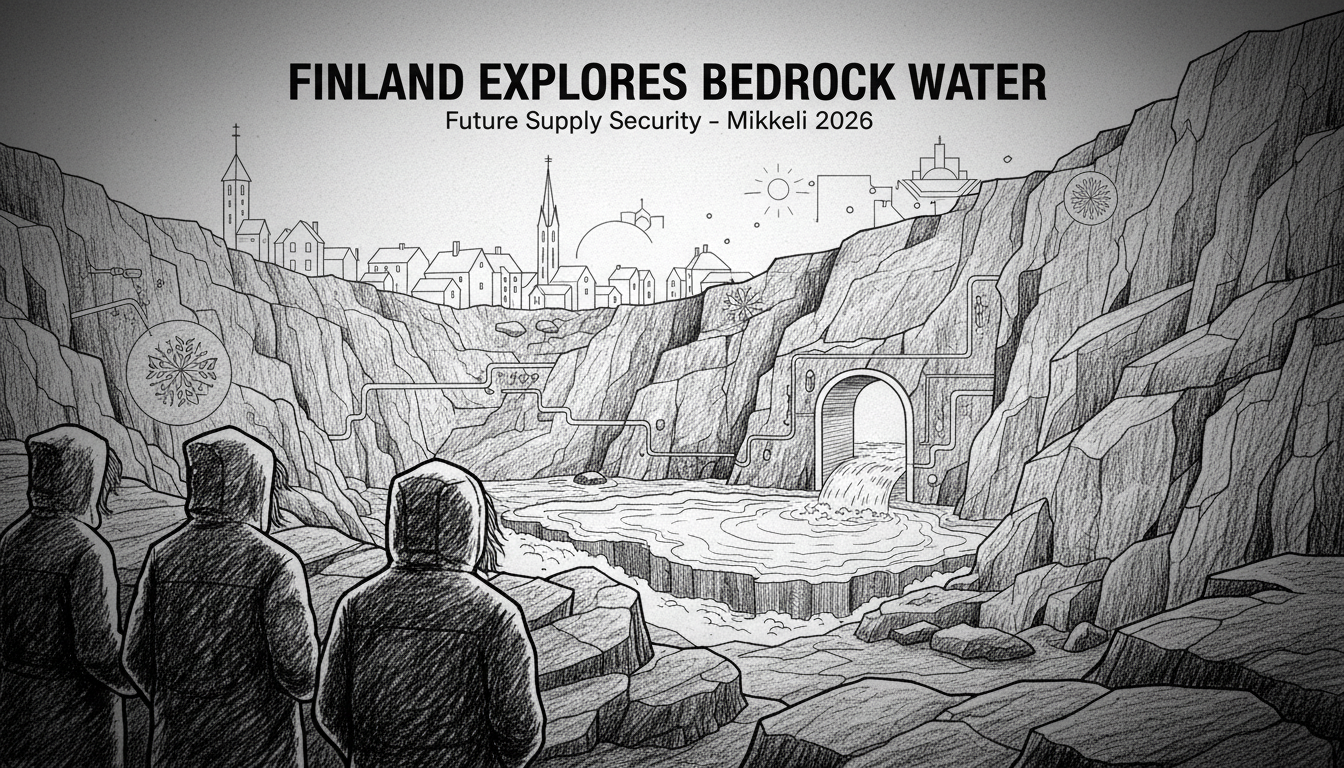Finnish geologists have launched comprehensive groundwater investigations in the Mikkeli region to determine whether bedrock water could supplement municipal water supplies. The Geological Survey of Finland project examines how deep bedrock aquifers might provide more climate-resilient water sources compared to current surface water and soil-based groundwater systems. This research initiative continues through the final quarter of 2026 with substantial European Union funding support through the South Savo ELY Centre.
Finland's water supply primarily relies on groundwater from soil formations that remain vulnerable to environmental changes. Bedrock water offers superior protection against contamination risks and climate variation impacts according to research authorities. The Mikapo project represents a strategic shift toward securing Finland's long-term water infrastructure against increasing environmental pressures.
Field operations began with preliminary bedrock fracture mapping during late summer months. Geophysical ground surveys will follow during spring 2026, with test well drilling scheduled for summer based on survey findings. The three-year timeline allows thorough assessment of bedrock water viability for municipal use.
This groundwater research holds particular significance for Finnish environmental policy and European water security standards. Finland maintains some of Europe's purest tap water through stringent protection measures, yet climate adaptation requires exploring deeper water reserves. The European Union's water framework directive emphasizes sustainable resource management that this project directly supports.
Local water utility Mikkeli Waterworks participates alongside municipal authorities in funding the initiative. This collaboration demonstrates how Finnish municipalities proactively address infrastructure resilience. The partnership model between national research institutions, local government, and EU funding mechanisms reflects Finland's systematic approach to environmental challenges.
Bedrock water investigation represents forward-thinking infrastructure planning rather than response to immediate shortages. Finnish communities increasingly prepare for climate scenarios where traditional water sources face greater contamination risks and seasonal variability. The Mikkeli project could establish protocols other Nordic municipalities might follow for water security enhancement.
Research outcomes will influence national water policy and regional development strategies across Eastern Finland. Successful bedrock water implementation would mark substantial progress in climate adaptation infrastructure. Finnish environmental authorities monitor these developments for potential application in other geologically similar regions.
International observers note Finland's methodical approach to resource management as global water security concerns intensify. The Nordic nation's investment in preventive research contrasts with reactive approaches seen in many regions facing water scarcity. This project exemplifies Finland's reputation for thorough environmental stewardship and technical innovation.

